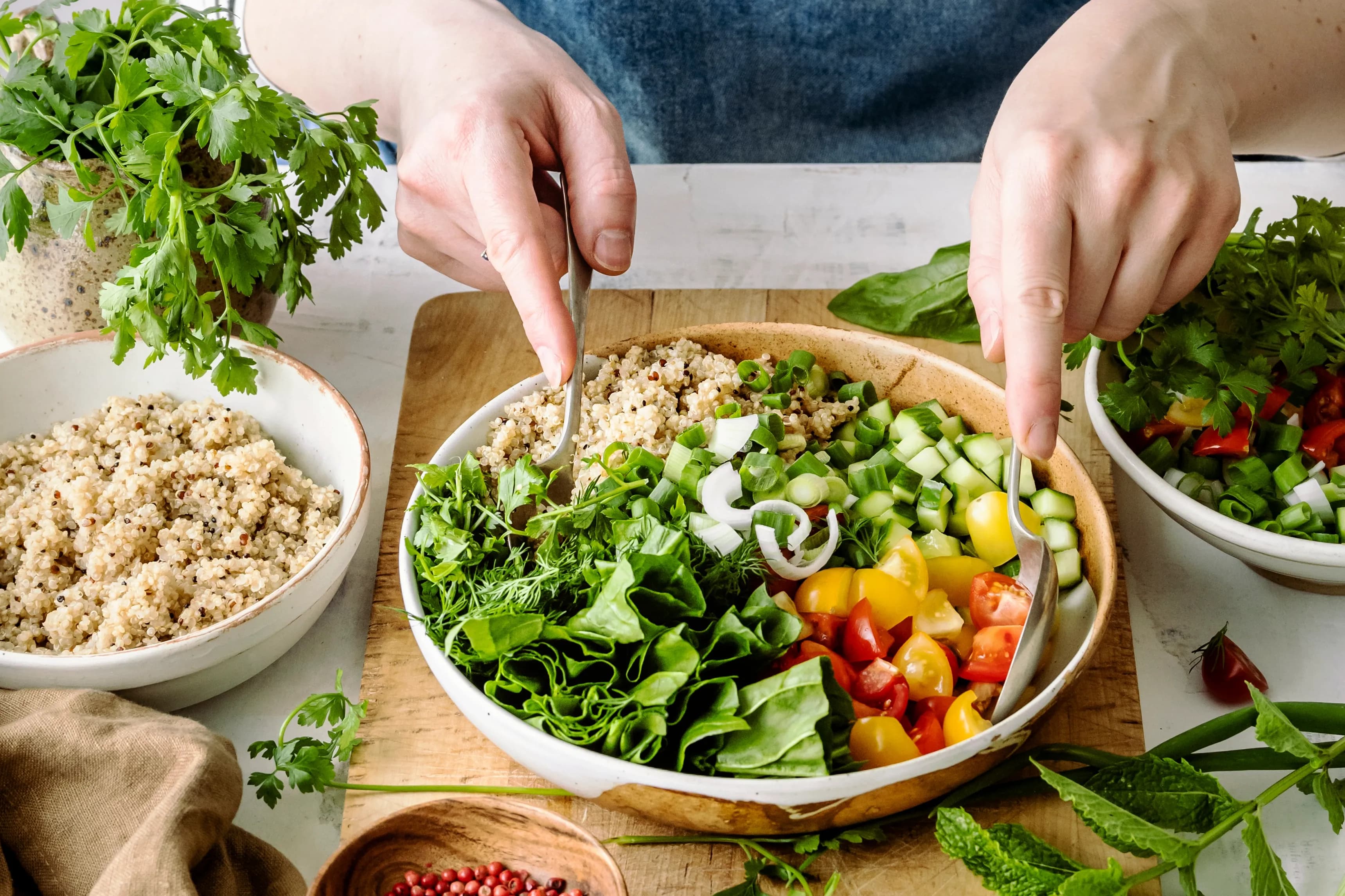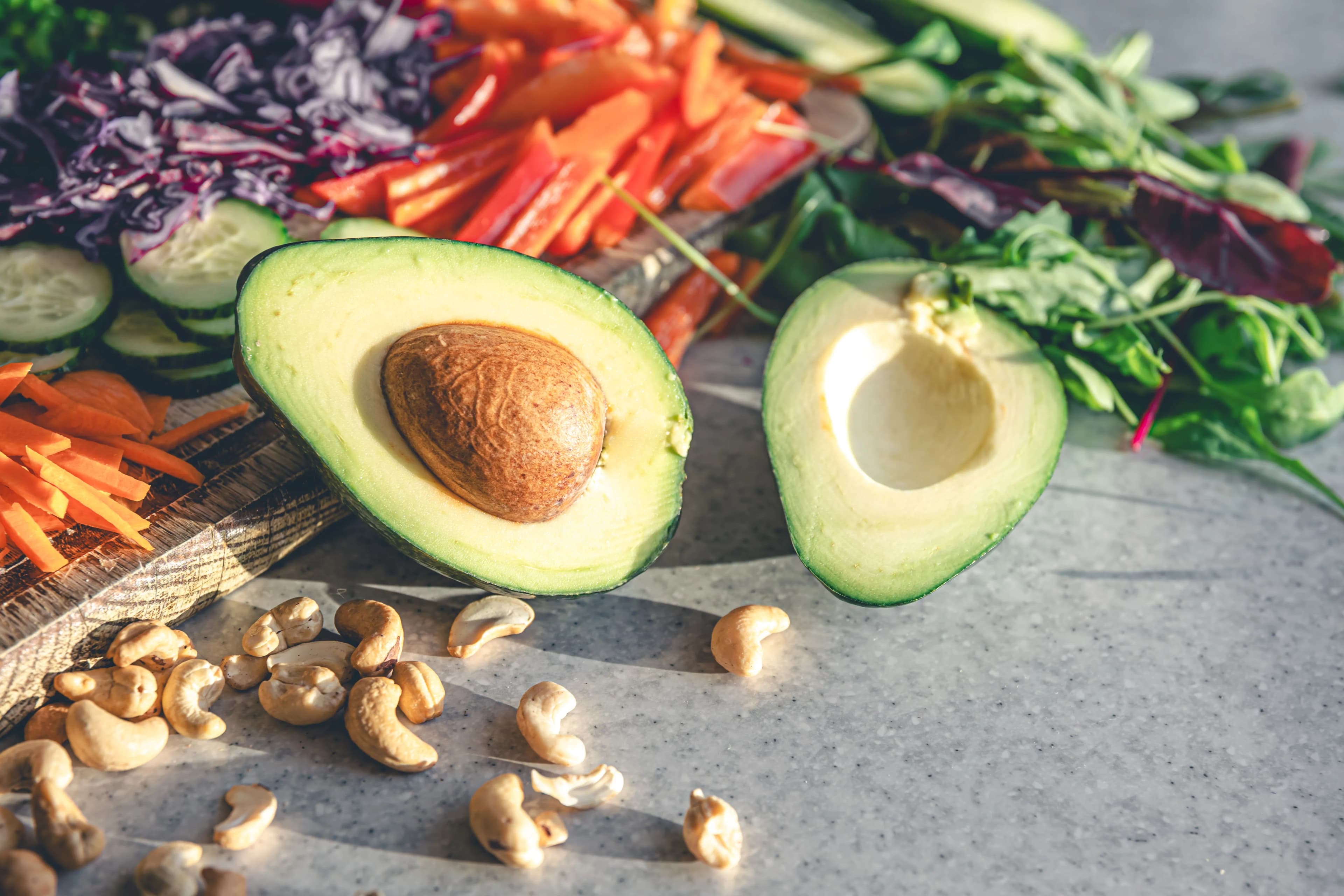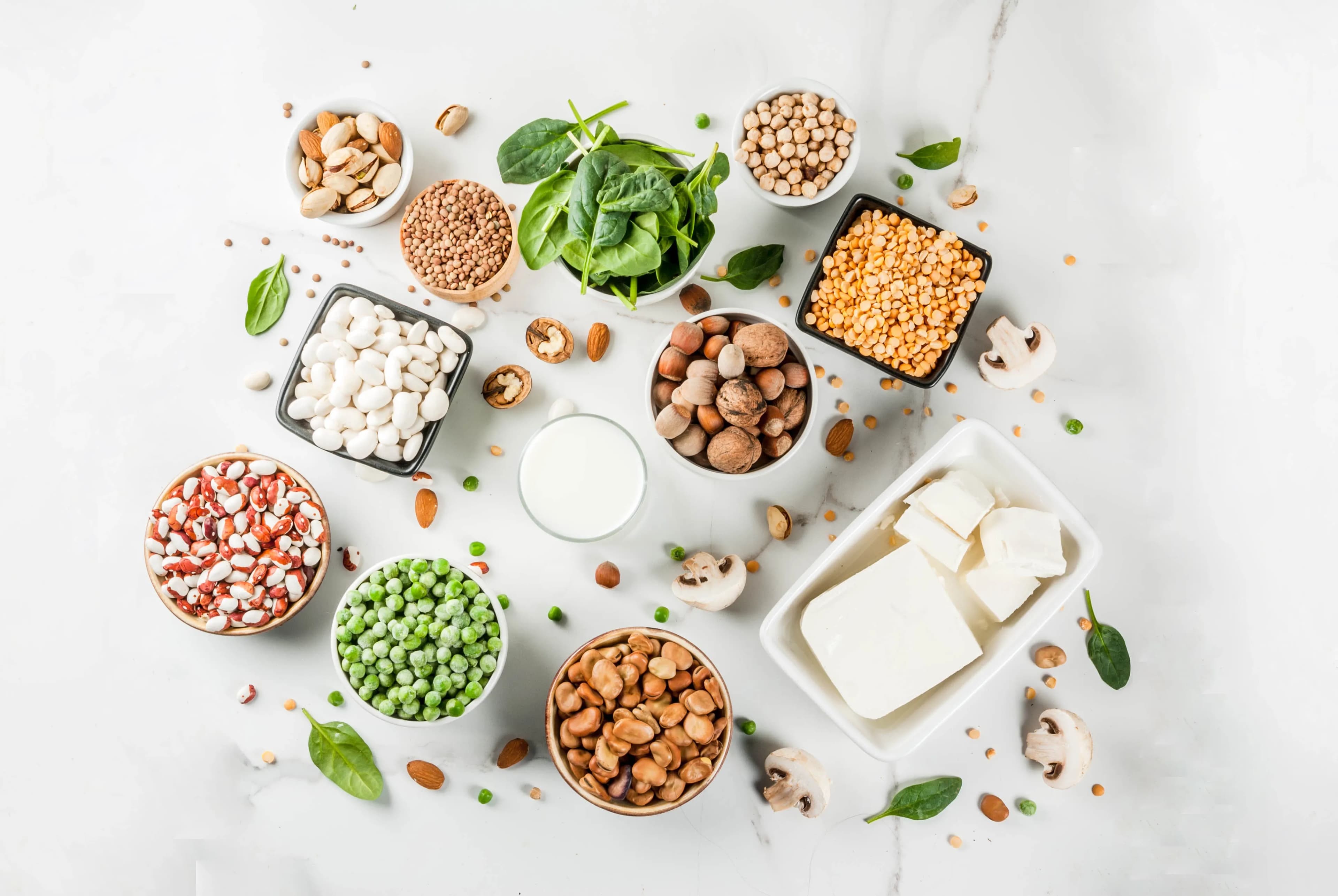
2025-08-18
|
Nutrition
Many people experience a drop in energy and drowsiness in the middle of the day. This can be caused by a deficiency of nutrients, sharp fluctuations in blood sugar levels, lack of sleep, or chronic stress. In such cases, it’s better not to rely on energy drinks or coffee. A more effective and healthier approach is to provide the body with a stable source of energy through nutrition. Plant-based meals rich in protein, fiber, healthy fats, and vitamins promote endurance and alertness throughout the day. Variety in a plant-based diet helps maintain physical and mental activity, as well as a positive emotional state.
Energy levels and concentration depend on many nutrients. First and foremost are the B vitamins, which are key factors in producing energy from food:
Iron is also very important, as it is part of hemoglobin and participates in oxygen transport. Iron deficiency leads to fatigue, especially when physical and mental demands are high.
Magnesium and potassium are important for nerve conduction and stress adaptation. Magnesium regulates the activity of nerve cells and muscles and is associated with relaxation and adaptation processes. Potassium helps maintain electrolyte balance and is necessary for transmitting nerve impulses, processes that are essential for endurance and maintaining proper energy levels.
To avoid sharp spikes in blood sugar, it is important to combine complex carbohydrates with proteins. Complex carbohydrates provide the body with energy, while proteins slow down the absorption of glucose from carbohydrates. In this way, the body receives stable energy support and can stay focused and alert throughout the day.
Omega-3 fatty acids are crucial for brain cell health. These polyunsaturated fats maintain the flexibility of neuron membranes, improve signal transmission between cells, and thereby enhance memory, attention, and cognitive processes.
A plant-based diet is an effective way to provide the body with energy throughout the day. Plant foods are rich in fiber, and most of them have a low glycemic index. This means that glucose enters the bloodstream gradually, without spikes, keeping energy levels stable.
Foods containing natural adaptogens, such as nuts, seeds, and leafy green vegetables, help the body adapt to stress. They also boost overall vitality without the use of stimulants like caffeine and increase endurance.
It is also important that plant foods are rich in antioxidants. Oxidative stress is one reason why people often feel sluggish and sleepy after a meal. Antioxidants reduce oxidative stress and neutralize free radicals. This helps prevent fatigue, maintain energy, and stay alert.

5 Meal Ideas for an Energizing Week
Choose nutritious plant-based meals to feel energetic throughout the day. These recipes will help diversify your menu.
Monday: Quinoa Bowl with Orange and Green Peas
Perfect for breakfast or lunch.
The combination of vitamin C from the orange and iron from quinoa and peas improves hemoglobin synthesis, supporting blood flow and energy.
Nutrients:
Ingredients: 100 g cooked quinoa, 1 orange, 80 g green peas (fresh or frozen), fresh herbs, olive oil, salt, pepper.
Preparation: Cook the quinoa and blanch the peas. Peel the orange and cut it into small pieces. Mix everything together and season with olive oil, salt, and pepper.
Tuesday: Warm Salad with Roasted Beetroot, Arugula, and Pumpkin Seeds
Suitable for lunch or an afternoon snack.
Nitrates from beets support proper blood circulation and endurance, while folate supports cognitive function.
Nutrients:
Ingredients: 2 beets, a bunch of arugula, 2 tbsp pumpkin seeds, olive oil, balsamic vinegar, salt
Preparation: Roast the beets in the oven at 180°C, let them cool, and cut into pieces. Mix with arugula and pumpkin seeds, and dress with olive oil and balsamic vinegar.
Wednesday: Smoothie with Banana, Spinach, Flaxseeds, and Almond Milk
Perfect for the morning or before a workout.
Magnesium and omega-3 from flaxseeds help manage stress, while B vitamins from banana and spinach support nervous system function.
Nutrients:
Ingredients: 1 banana, 1 handful of fresh spinach, 1 tbsp ground flaxseeds, 200 ml almond milk
Preparation: Add all ingredients to a blender and blend until smooth.
Thursday: Vegetable Lentil Soup with Turmeric
A great option for lunch.
Curcumin reduces inflammation, lentils provide protein and iron, giving energy for the day.
Nutrients:
Ingredients: 100 g red lentils, 1 carrot, 1 onion, 1 clove garlic, 1 tsp turmeric, salt, pepper, olive oil
Preparation: Sauté the onion and carrot, then add garlic, turmeric, lentils, and water. Cook for 15 minutes until the lentils are tender. Blend with a hand blender until smooth.
Friday: Oatmeal with Apple, Cinnamon, and Walnuts
A great option for breakfast.
The slow-digesting carbohydrates in oatmeal help maintain stable energy levels without blood sugar spikes. Polyphenols from the apple and omega-3 from the walnuts support brain function.
Nutrients:
Ingredients: 50 g rolled oats, 1 apple, 1 tsp cinnamon, 30 g walnuts, plant-based milk or water
Preparation: Cook the oats in water or plant-based milk. Add chopped apple, cinnamon, and crushed walnuts.

When planning your weekly meals, it’s important to incorporate a variety of nutrients from different sources. A balance of proteins, complex carbohydrates, and healthy fats creates a stable source of energy.
Proteins (lentils, chickpeas, tofu, seeds, plant-based yogurt) — repair cells and muscles
Complex carbohydrates (whole grains, quinoa, vegetables) — provide slow-release energy
Healthy fats (avocado, nuts, olive oil, flaxseeds) — support brain function and hormone synthesis
Eliminate refined sugar and stimulants from your diet.
Refined sugar and stimulants, such as energy drinks and caffeine, should be avoided. White sugar is a fast-digesting carbohydrate that causes blood sugar spikes and rapid fatigue. Excess caffeine and energy drinks can exhaust the nervous system.
The best approach is to eat regular meals and stay hydrated. Eat small portions every three to four hours. Drink 1.5–2 liters of water, tea, kombucha, or fruit infusions daily. It is important not to skip breakfast, as it helps kickstart your metabolism after sleep.
Another important step for maintaining energy is to include foods with anti-stress properties in your diet. Oatmeal, avocado, and leafy greens counteract the effects of stress on the body. These foods should be consumed daily because chronic stress depletes magnesium, B vitamins, and omega-3 reserves.
Plant-based nutrition offers health benefits as well as increased productivity, mental clarity, and endurance throughout the day. A plant-based diet consists of simple, nutrient-rich dishes in which all ingredients are proportionately balanced. It is an effective way to stay in shape.
You can experience live plant-based cuisine at Organica restaurant. Try the chef's original recipes and enjoy plant-based dishes any day of the week.